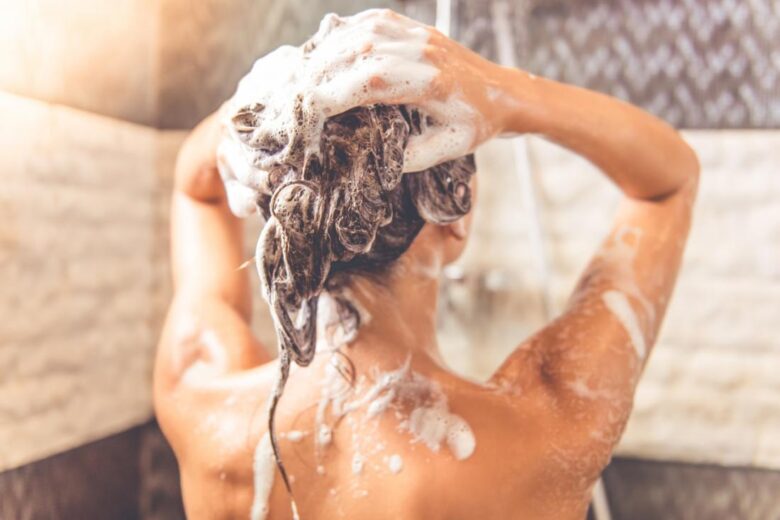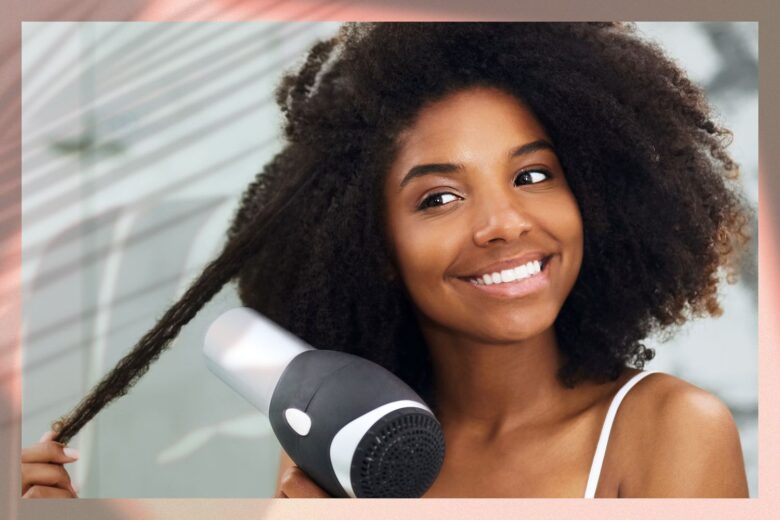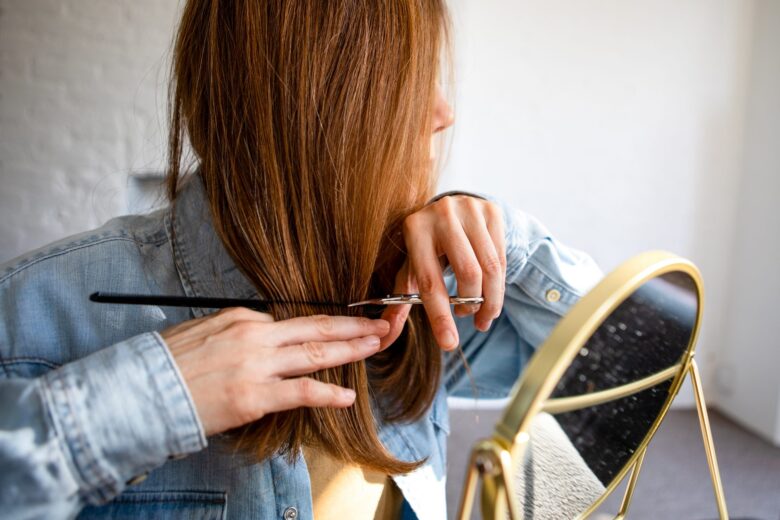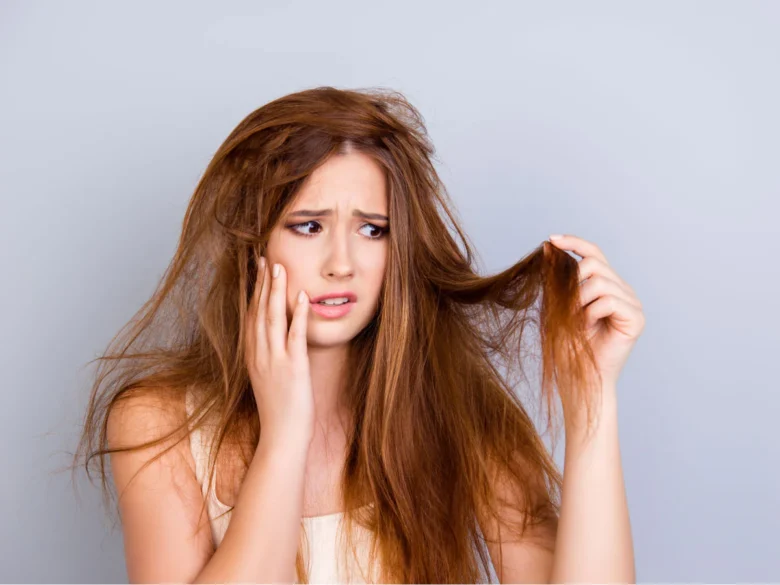Whether you’re a hair styling junkie who can’t live without a high-quality styling tool or a haircare enthusiast who wouldn’t let a chemical near her mane, chances are you have some environmental or decision-based elements in your life that are causing your hair to appear less than its best. However, hair care experts believe that with correct hair care, the desire for healthy hair can become a reality.
Contents
- Natural hair conditioners
- Wash your hair on a regular basis
- Chemical-free shampoos
- Natural hair drying
- Properly oil your hair
- Make use of a wide-toothed comb
- Trim your hair on a regular basis
- To dry, use a hair wrap or an old t-shirt
- Make use of hair bands
- Wear hair caps or hats
- Healthy food for your hair
- Water is the key
- What not to do
- What happens if you don’t look after your hair?
- In conclusion
Natural hair conditioners
Your natural conditioner needs to have elements that help your hair to fall straight and be manageable. You may have stronger, smoother, and healthier hair by using a natural conditioner. The natural hydration collection nourishes your scalp and penetrates deep into each strand of hair to moisturize and protect without weighing down your hair. To restore lifeless, dry and damaged hair, all natural conditioners combine high hydration technology and lovely, natural ingredients. Also, they shield your hair from environmental irritants and heat styling. However, it should only be used on the tips of your hair and not on your scalp. Also, after applying it, properly rinse it off.
Wash your hair on a regular basis

Source: medicalnewstoday.com
Washing your hair on a regular basis keeps your scalp and hair clear of impurities and excess oil. However, the appropriate frequency is determined by your hair type and personal preferences. Limit your washing to twice a week if your hair is really dry. Washing your hair on alternate days will assist if you have an oily scalp.
Chemical-free shampoos
You can’t control all of the environmental elements that harm your hair, but you can manage the shampoo you use. The fewer chemicals in your shampoo, the healthier your hair. Choose gentle shampoos that are appropriate for your hair type.
Shampoos contain sulfates and parabens for lathering and preserving, but they can cause skin irritation and raise the risk of hormone disturbances over time.
Natural hair drying

Source: instyle.com
Blow drying your hair makes it look as good as your on-screen idol’s. However, overheating your hair can cause damage to the scalp. If you must style, keep it to significant occasions only. After shampooing, air drying or towel drying is the finest option. Never sleep with wet hair or comb it. Rubbing your hair with a towel too hard might harm the cuticle. Be kind with yourself.
Properly oil your hair
Pre-shampoo therapies such as oiling and massaging the scalp increase blood circulation, relax the muscles, increase sunny glow and nourish the hair. It also replenishes moisture, promotes hair development, and heals split ends. You can use coconut oil, almond oil, olive oil, castor oil and other similar oils. But be aware that mineral oil should not be used on your hair.
Make use of a wide-toothed comb
Wet hair is brittle and easily broken. Allow your hair to dry before brushing it with a wide-toothed comb or brush. This type of comb protects your hair from harm.
Trim your hair on a regular basis

Source: stylist.co.uk
Split ends should be removed from your hair every 6-8 weeks. Split ends occur when the hair is damaged by thermal styling, pollution, smoking, stress and other factors. Trimming does not cause hair to grow faster. Hair grows from the scalp, but trimming guarantees healthy hair.
To dry, use a hair wrap or an old t-shirt
You can use your t-shirt to dry your damp hair without damaging it. Traditional towels are harsh on your hair cuticles and can cause damage over time. Start saving your soft, made of cotton, old t-shirts immediately!
Make use of hair bands
If you have long hair, you probably like to show off and let it fly freely, but sometimes you also need to use hair bands to protect it from environmental aggressors. When making a ponytail or any other hairdo, don’t pull your hair too tightly. And instead of using plastic hair ties that could damage your hair, use fabric hair bands that will be gentle with your precious mane.
Wear hair caps or hats
The same way that sunlight harms your skin, it also harms your hair. Sun rays can strip moisture from your hair, leaving it fragile and damaged over time. When going out, wear a hat to protect your hair from the elements. When swimming in a pool, cover your hair with a cap. Chlorinated water is damaging to your hair.
Healthy food for your hair

Source: capillus.com
You’ll keep saying ‘you are what you eat’ as long as it’s about hair and skin care. Proteins and amino acids make up your hair. It needs proper nourishment to grow and maintain itself. Some of the many fantastic meals for good hair include eggs, berries, almonds, salmon, green leafy vegetables and sweet potatoes.
Water is the key
Internal and external hydration are essential for healthy and balanced hair. Even if you use moisturizing hair care products and oils, consuming at least 3 liters of water daily ensures optimal hair health.
What not to do
Hot showers deplete your scalp’s natural oils, leaving it dry and flaky. Your best bet is to take cold showers. Stress can also lead to hair loss and unhealthy hair. Chemicals used in dyeing, perming and other hair treatments damage your hair follicles, impair hair growth and can cause hair loss. Heat styling with straighteners, blow dryers and curlers for extended periods of time affects the texture of the hair, making it dry and prone to breaking. Salt water destroys the cuticle of the hair, irritates the scalp and tangles the hair. In swimming pools, avoid chlorinated water.
What happens if you don’t look after your hair?

Source: pureautynaturals.com
If you don’t take care of your hair, it may eventually cease growing. Dandruff, hair fall, lack of moisture and dullness may appear gradually.
Ingrown hairs can be caused by not washing your hair for an extended length of time. They can also appear on the scalp. Likewise, leaving your hair unwashed for an extended period of time attracts more dust. Using the improper hair care products might cause itching and hair loss.
In conclusion
So, by utilizing chemical-free products designed for your specific hair type, eating well, avoiding heat styling, and following all of the above guidelines, you can say goodbye to terrible hair days! Most essential, visit your doctor if you are experiencing severe hair loss and damage while following a proper hair care program. And, whether you have hair or not, you should still love yourself.
